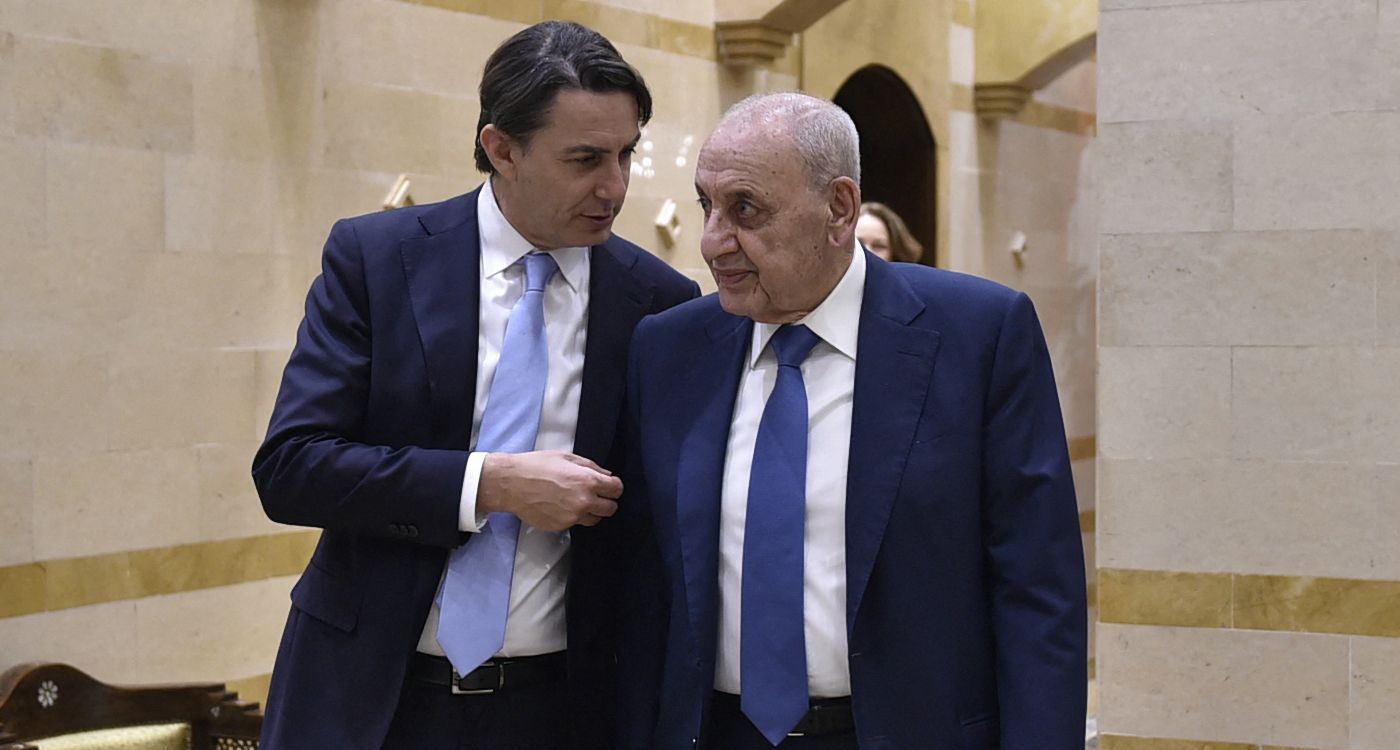
The US is not convinced that Lebanon is capable of enforcing Resolution 1701. Washington did not receive any assurance from parliament Speaker and Amal Movement leader Nabih Berri or caretaker Prime Minister Najib Mikati indicating that Hezbollah would accept keeping the area south of the Litani River free of weapons and militants. All they heard was that the army would redeploy in that area, but the question remains whether it will be able to locate and seize weapons, confiscate ammunition, destroy remaining tunnels and dismantle infrastructure. Or, will the army be prevented from doing so and obstructed by Hezbollah’s so-called “local supporters?”
Sources in Washington revealed that US presidential envoy Amos Hochstein informed Berri and Mikati that trying to place sole responsibility for a ceasefire on Israel would not succeed in securing a truce. For a positive Israeli stance on the matter, Lebanon would need to provide a written commitment, not only to deploy its army in the south, but also to secure Hezbollah’s approval of a demilitarized zone south of the Litani, halt the production and stockpiling of weapons and missiles, stop the transfer of arms from Iran via the Syrian border and refrain from using certain official ports for this purpose.
It was revealed that Hochstein’s request went unanswered and was met with stalling tactics and unfulfilled promises, which led American officials to conclude that the Lebanese authorities remain stuck and unable to impose on Hezbollah the will to uphold stability and calm in the south. Additionally, they lack the capacity to meaningfully address Hezbollah’s heavy weaponry or to make a clear political decision to secure the border with Syria.
American sources warned that if the Lebanese authorities persist with these policies after the US elections, the next administration—whether under Kamala Harris or Donald Trump—would likely be more supportive of Israel in any conflict with Hezbollah and would grant Israel an extended period to achieve its objectives in Lebanon. This is especially relevant as a clearer American-Israeli alignment is emerging, signaling that the dismantling of Hezbollah’s military structure, if it occurs, would be a significant blow to Iranian influence in the region and weaken it in any future negotiations with the United States.
The American sources characterized Berri and Mikati’s promotion of an imminent ceasefire agreement as a means of deflecting responsibility for the continuation of hostilities and placing the blame solely on the Israelis. This attempt to sidestep responsibility became evident when they refused even to discuss the possibility of a unilateral ceasefire—not out of opposition to the idea, but because merely suggesting it to Hezbollah would make them personas non grata to Iran as negotiators.




Comments